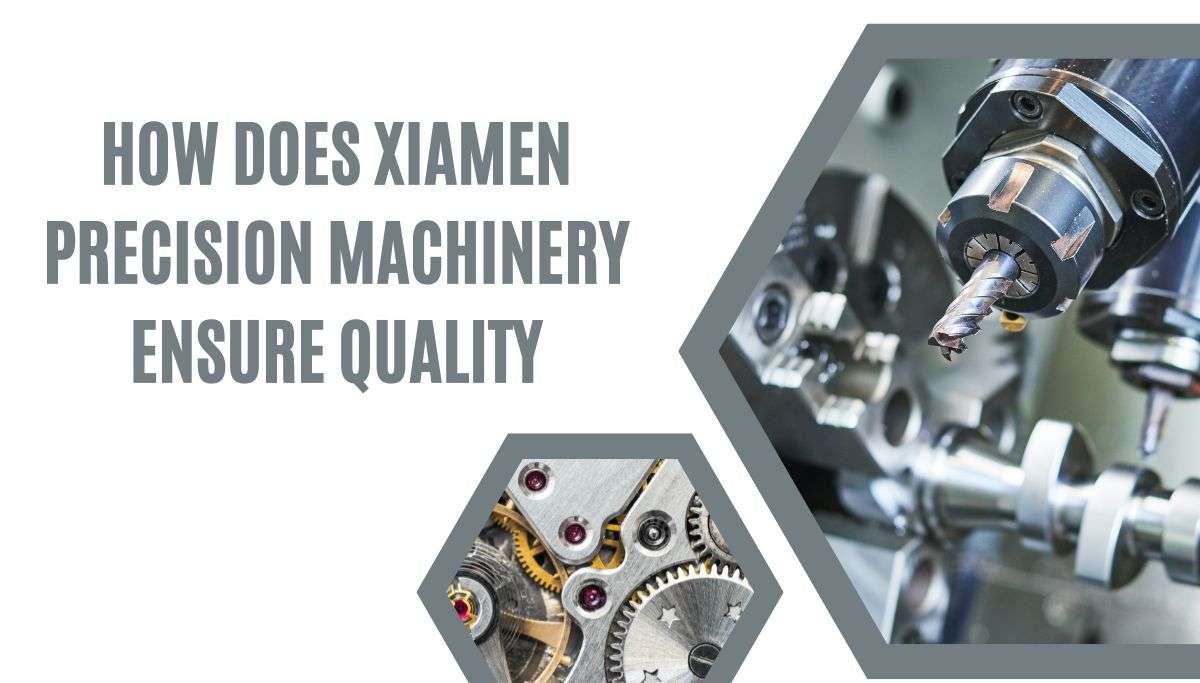
Nov 3,2023
Xiamen Precision Machinery is a name synonymous with precision machining and CNC machining excellence. In today's world, where precision is a non-negotiable factor in many industries, the role of companies like Xiamen Precision Machinery is crucial.
In this blog post, we will delve into how Xiamen Precision Machinery ensures the highest levels of quality in precision engineering and CNC machining.
Precision machining is the backbone of modern manufacturing, and Xiamen plays a pivotal role in this field.
With its state-of-the-art facilities and a dedicated team of experts, Xiamen has carved a niche for itself in the precision machining industry. But what exactly is precision machining, and why is Xiamen the ideal hub for it?
Precision machining involves the manufacturing of complex parts and components with incredibly tight tolerances. These parts are often used in industries such as aerospace, automotive, medical, and electronics, where precision and quality are paramount. Xiamen's strategic location and the presence of a skilled workforce make it a natural choice for precision machining.
Xiamen Precision Machinery takes quality very seriously. It starts with the company's mission to provide the highest quality CNC machining services. But how does Xiamen achieve this level of quality assurance? Let's take a closer look.
CNC machining is at the core of Xiamen's services. Computer Numerical Control (CNC) technology ensures that each component is produced with precision and consistency. Xiamen employs cutting-edge CNC machines that are calibrated to the highest standards, allowing for intricate and accurate machining.
Technology plays a significant role in the quest for quality. Xiamen Precision Machinery invests in the latest CNC machining equipment and software to ensure that each product meets the required specifications. This technological edge allows for consistency and reliability in the manufacturing process.
Quality control is not just about machines; it's about people, too. Xiamen Precision Machinery has a team of highly skilled and experienced engineers and technicians who oversee the entire production process. They ensure that every detail is checked and rechecked for quality.
Xiamen Precision Machinery adheres to international quality standards and holds certifications that reflect its commitment to quality. These certifications act as a stamp of approval, assuring customers that their projects are in capable hands.
CNC machining relies heavily on technology. Xiamen Precision Machinery utilizes the latest advancements in CNC machining technology to deliver high-precision components. This commitment to staying up-to-date with technology sets them apart in the industry.
Ensuring quality requires rigorous control measures. Xiamen Precision Machinery's quality control processes are comprehensive and leave no room for error.
This includes inspections at various stages of the production process, from material selection to final assembly. Tolerances are tightly controlled to meet the exact specifications required by the customer. Every detail is documented, ensuring traceability and accountability.
To maintain a leading position in the CNC machining industry, Xiamen Precision Machinery doesn't rest on its laurels. It actively seeks ways to improve and innovate. This commitment includes:
The manufacturing industry is ever-evolving. Xiamen Precision Machinery keeps a close eye on industry trends and adapts its processes to align with these changes, ensuring that customers receive cutting-edge solutions.
Innovation is at the heart of quality. Xiamen invests in research and development to explore new techniques and technologies, ultimately enhancing its precision machining capabilities.
Xiamen Precision Machinery collaborates with clients and partners to develop customized solutions that meet specific needs. This collaborative approach often leads to breakthroughs in precision engineering.
By consistently staying ahead of the curve, Xiamen Precision Machinery maintains its reputation as an industry leader in CNC machining. This reputation is built on a foundation of unwavering commitment to quality.
Xiamen Precision Machinery's commitment to quality in precision engineering and CNC machining sets it apart as a trusted partner in the industry. The use of cutting-edge technology, stringent quality control measures, and a continuous drive for improvement and innovation make Xiamen Precision Machinery a reliable choice for businesses seeking top-notch precision machining services. When it comes to quality, Xiamen Precision Machinery delivers excellence, consistently meeting and exceeding customer expectations.